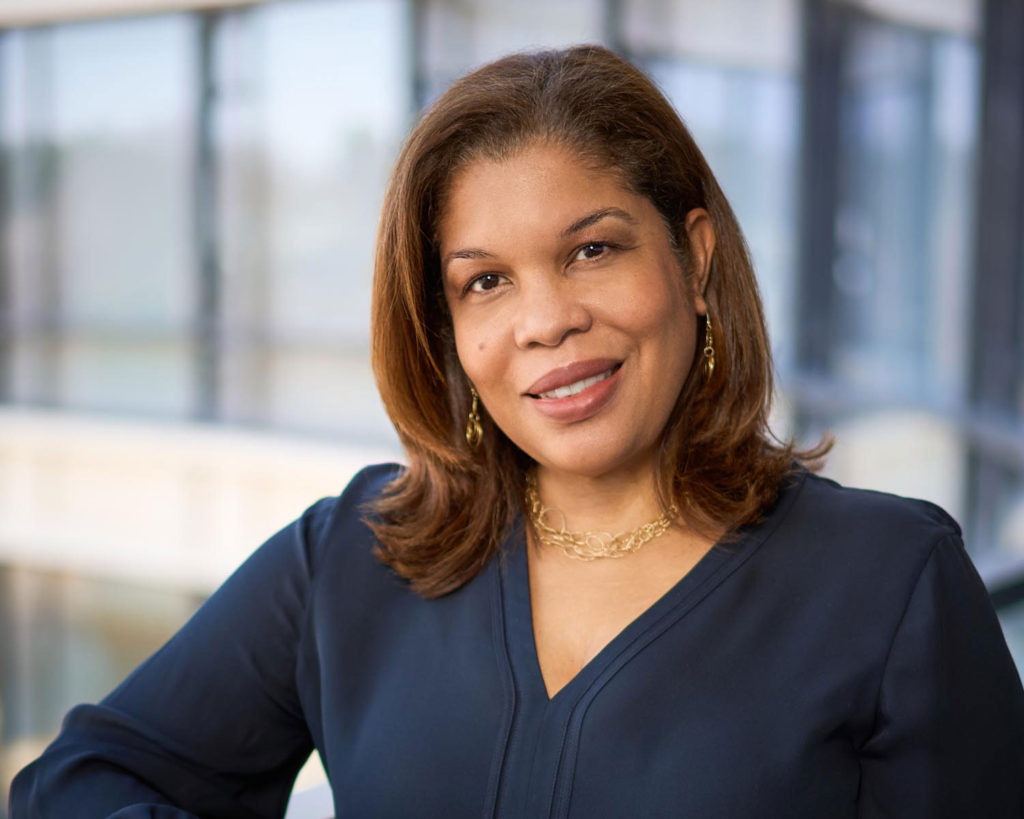T&T-born Tonya Villafana on her love for science, her work developing a COVID-19 vaccine at AstraZeneca, and keeping grounded in mid-pandemic — as told to Marvin Espinoza
I grew up in Trinidad, and it was a wonderful experience to grow up on a Caribbean island in the 1970s and 80s. My love for science began with my schooling, particularly when I went to high school at St Joseph’s Convent, Port of Spain. I was really encouraged to follow my passion, science. I did that all through high school and was supported in developing all of my interests in the scientific field from a very early age, both at home by my parents and also at school.
As an undergraduate I became more interested in the field of immunology. The field was blossoming at the time, particularly with the HIV pandemic, which helped to push the boundaries of science and what we understood about the immune system. As an undergrad, I had the opportunity to study and work in a laboratory where we were learning about HIV and other retroviruses, and where we were in the early stages of developing DNA vaccine technology.
When the time came to go to graduate school, I wanted to focus on immunology as my foundational area of expertise and training. During my training and in my career, I have focused on how the immune system works, in states of health and disease, and specifically in the fields of rheumatology and infectious disease.
Around 2001, I moved to sub-Saharan Africa to work on HIV vaccine development. I worked on setting up some of the first Phase 1 vaccine studies in the region. I was based in Botswana, and I did that for about five years. Towards the end of my time there, I joined a group that was developing a malaria vaccine in sub-Saharan Africa. I’m really excited about where that vaccine is today. In October 2021, the vaccine was endorsed by the World Health Organisation for “broad use” in children, making it the first malaria vaccine candidate to receive this recommendation.
The early days of the COVID-19 pandemic were exhausting and exhilarating. At AstraZeneca, we were committed to helping, and we were dedicated to making a difference in the pandemic. And so I had the opportunity to lead the R&D efforts of our vaccine in collaboration with Oxford University.
I don’t think I’ve ever worked as hard in my life, and I’ve never worked with a group of people who were so passionate, dedicated, and resilient to get this done. We were working 24/7. I mean, it was like fifteen- to twenty-hour days. Some days, I would sleep for a few hours and get up and just start working again. So it was really an intense period as we got all the studies up and running around the world for the vaccine programme in collaboration with the Oxford team.
I remember we decided very early on that we wanted to develop a vaccine for the world, and we wanted to do it not for profit during the pandemic. This was our commitment with Oxford. We worked so closely between our teams at Oxford and AstraZeneca. Our teams are all over the world, and adjusting to virtual meetings and being on with each other constantly was also a huge change in our normal ways of working. As we were planning and conducting clinical studies, my colleagues in our operations and manufacturing groups were in parallel scaling up manufacturing across the world to ensure that we could supply in all regions around the world. It was really intense and very exciting. We felt like we were racing against the clock.
When the vaccine was finally developed, the feeling was overwhelming, just overwhelming pride that we did this, that we were going to help so many people, and that I knew my family would get it. I knew that people in T&T, and my family in Africa — my husband is from Senegal — would have access to this vaccine and that we could help so many people around the world. My first meeting in 2021 was at four in the morning preparing for the vaccine rollout.
It’s still quite busy, because the COVID-19 pandemic continues and we need to keep getting vaccines into the arms of people. Vaccines are the most important public health interventions that have occurred in the past two centuries. I think it’s really important to understand and to inform yourself of how vaccines work and the potential to really protect people from having the most severe outcomes related to disease.
Scientists and public health leaders need to do a better job of educating people about the importance of vaccines. Think what the world would be like if we didn’t have vaccines for smallpox, for polio, for measles, mumps, rubella, and many of the vaccines we routinely give to children today.
I believe getting vaccinated against COVID-19 is really fundamentally important to stopping the pandemic, and that vaccines are making a difference. Most importantly, vaccines prevent the worst outcomes of COVID-19 and the most severe disease. We owe it to ourselves and to our communities to be vaccinated so we can all return to our everyday lives.
When I’m not working, I spend time with my family. I love to travel. I love to cook. I spend time with my daughter, my husband, and my mom. I enjoy eating great meals, going to dance performances, listening to live music, and I’m looking forward to coming back home and enjoying some sun and sea in the Caribbean. I haven’t been able to do much of it in the past two years.
Pre-pandemic, I was home at least once a year. My family is incredibly supportive and very proud, and they have all been vaccinated. I am lucky. They’ve always encouraged me to pursue my passion. They tell me how things are going in Trinidad, and what people think. They keep me grounded.

